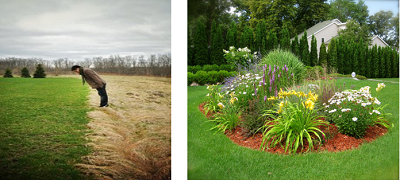A Coaching Power Tool created by Bakhtiar Khawaja
(Executive Coach, PAKISTAN)
If the grass looks greener on the other side, it is probably AstroTurf
(Anonymous)
Background:
My work in the corporate sector, in areas of HR management and HR development, gave me ample opportunity to observe how employees get into arguments with their bosses and with HR on issues like:
The ritual has become so ingrained that such arguments invariably always crop up around performance appraisal or bonus times, during townhouse meetings or annual conferences. The manner in which dissatisfaction is expressed differs from company to company, depending on its culture, norms and leadership style.
In such situations, as Head of HR, I tried to help people understand by saying things like:
You have done pretty well yourselves, for which you should be thankful to your stars. With a little more effort and application of what you know will take your career beyond your expectations. And that it is futile to compare yourself with others. Your primary comparison is with your own past performance.
I admit it has been difficult to help people understand.
Introduction:
Grass is Greener On the Other Side (GIGOTOS) is an old English idiom, which is indicative of a number of mental processes working simultaneously – some at a conscious level, and others under the surface. Some of these processes are:
Corporate environment is a breeding ground for the ‘rat race’ we are familiar with in the present day competitive environment. Typically, people crib and grumble about others being rewarded more than them when, in their opinion, they worked harder than all the rest. This attitude further diminishes their capacity to produce good results.
If unchecked, this frame of mind can undermine our innate benevolence and contentment. It can give rise to an acute ‘keeping up with the Joneses’ state of mind. In this disempowering state we sabotage our sense of well-being and peace of mind by indulging in unnecessary comparisons with others. This ultimately adversely impacts our quality and productivity.
An Illustration of GIGOTOS
As I move closer to the hedge in my back garden, I catch a glimpse of my neighbour’s lawn – and it sure appears to be greener. I look back at my own lawn, and my observation is confirmed. What is going on?
An optical illusion may be at play. When I see my neighbour’s lawn, my perception is based on seeing it at an acute angle – seeing more of the upper and middle parts of grass blades, with the earthy brown hidden from view. This gives the neighbour’s lawn a more wholesome green tinge. On the other hand, my view of my own lawn is based on my near vertical observation from above, with earthy brown mingling with the greenness of the grass.
